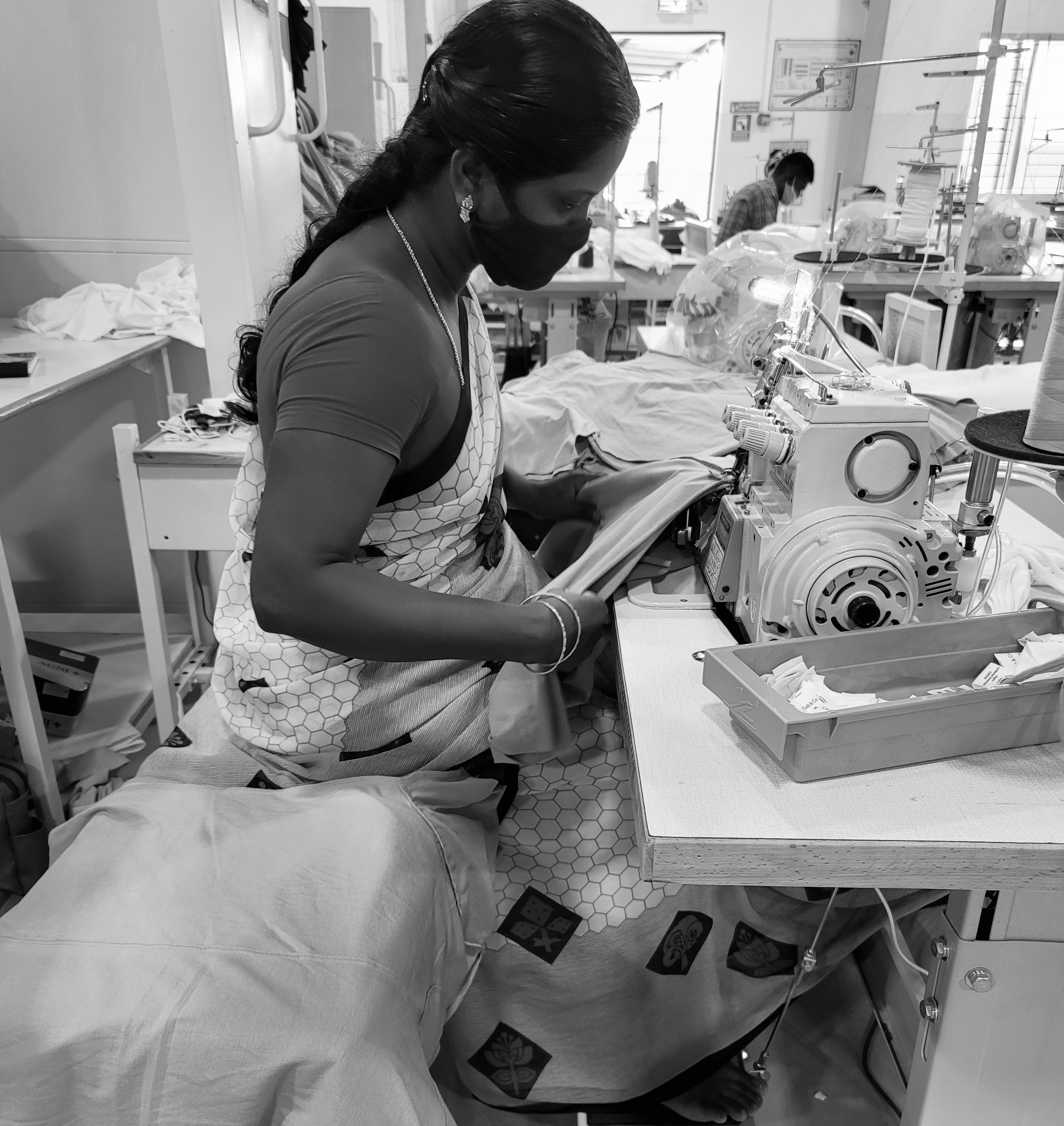Could the universally loved cotton t-shirt help fight climate change?
The universally loved cotton t-shirt and jeans have crossed cultural boundaries and are widely known as the acceptable and somewhat preferred casual clothing for all ages, sizes and cultures in the contemporary world. With that comes the massive demand for conventional cotton which has been targeted as one of the greatest contributors to environmental and human devastation. However; on the flip side, should the approach to the fiber source and production of cotton be addressed in an environmentally friendly manner, it could have the opposite effect and be a major solution to the impending climate crisis.
In our constant mission at Cloth & Co. to not only minimise our negative impact but to use our business to create positive change; we have been exploring ways to revisit our supply chain (going right back to the soil) and product designs to do just that!
As the global focus on climate change increases, so has attention to carbon capture and sequestration, or the process of preventing carbon from entering the atmosphere and storing it safely. Carbon capture or sequestration occurs naturally when plants take carbon dioxide from the air during photosynthesis and store it in the soil or plant.
 Image Source - @siddharthsinh24
Image Source - @siddharthsinh24
The cotton plant is actually very efficient at removing CO2 from the atmosphere, and its capacity to store it in the soil and fibre is only increasing. Agricultural innovations like precision fertilisation, cover cropping, and no-till management, which is becoming increasingly popular around the world, significantly improve the soil’s carbon and water storage capacity.
Taking into account the carbon stored in cotton fiber, an acre of no-till cotton actually stores 350 pounds more of atmospheric carbon than it emits during cotton production, meaning that cotton’s contribution to the carbon equation is a net negative. This carbon sequestration can be further enhanced by the use of cover crops, which is based on traditional knowledge and a practice that farmers are returning to. So, not only is responsible cotton production carbon-conscious, but it also has the potential to be a vital part of the global effort to curb climate change.
If all the cotton farms in the world employed conservation tillage techniques, the global cotton acreage would remove emissions equivalent to taking 3.5 million passenger cars off the highways every year!

Added to this, if we support indigenous farming practices for our cotton production, where the soil is regenerated through crop rotation and the use of non-GMO seed and rain harvested water; we will not only be supporting farmers, their families and entire communities in nutrient-rich, toxin-free food crops, we will be having a positive impact on the environment..
The humble t-shirt made from regeneratively farmed cotton is actually helping to significantly reduce carbon, increase biodiversity and help reverse climate change.
Additionally, adding diverse crop rotations and cover crops to no-till management can boost carbon storage even higher, while providing other key benefits such as weed control and food crops to the producers as well.
Globally approximately 2 billion t-shirts are sold annually*. Imagine if a large percentage of those t-shirts were produced using cotton that has been farmed using non-GMO seeds, indigenous, no-till farming practices, non-toxic dyes and rain harvested and recycled water for production.
With regenerative farming practices, the brands invest at the farm level, sharing the responsibility and providing assurance for the farmers who are producing their cotton. This provides the means for farmers to produce lower yield crops in balance with nature without financial burden or risk. Which seems only fair.

Cloth & Co. have partnered with GVK Society and their Raddis® system where we actively contribute to:
- The regeneration of our eco-systems
- Reversing Climate Change
- Better livelihoods of tribal farmers
- Securing organic cotton supply for years to come
Although this would come across as a simplistic view and we understand that it is a complex system, we feel that if we all looked at the humble t-shirt as a savior for our planet, we would place a much higher value on it and consider the role of the soil and the farmers from which it came.
Consumer education and demand will influence this outcome, brands can make a difference but only if there’s the demand and everyone is prepared to pay along the way. It’s not about the t-shirt, it’s about the future of our planet and all living beings including humanity.



 Image Source - @siddharthsinh24
Image Source - @siddharthsinh24


